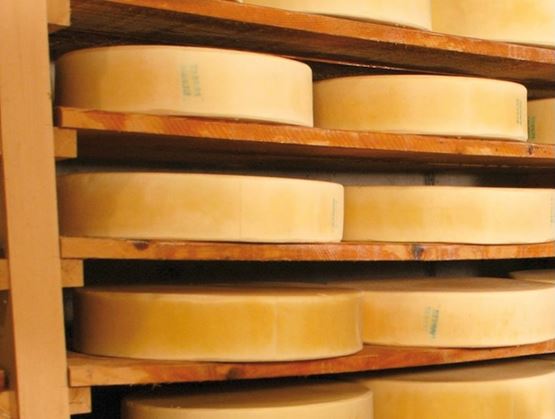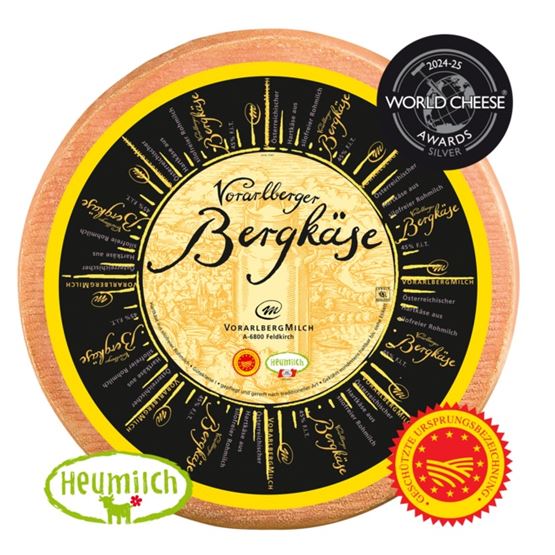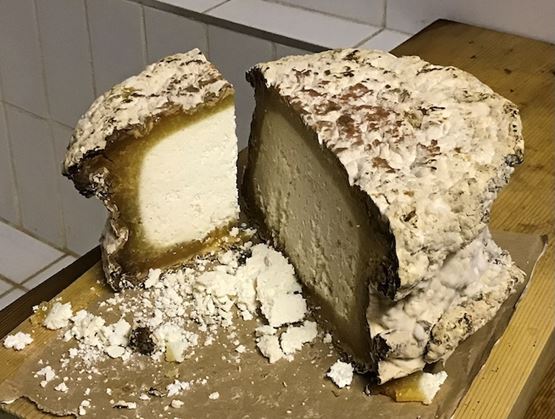For over thirty years, the European PDO label has been highlighting products that derive their authenticity from a specific region, its expertise and local ingredients. Today, more than 150 cheeses, butters and creams carry this distinction in Europe, guaranteeing consumers recognised quality and a strong identity. The show invites you to explore the latest news in these pages, before coming to taste them for yourself at the exhibitors' stands, from 7 to 9 June 2026 at Paris Expo Porte de Versailles.
Today, we turn our attention to Austria. Mozart's homeland now has seven cheeses with Protected Designation of Origin (PDO) status, including Alpine and mountain cheeses renowned for their firm texture and strong flavour, and other more pungent cheeses, such as Tiroler Graukäse and Ennstaler Steirerkas, which are made using milk sparingly. Together, these PDOs illustrate the diversity of regional expertise, ranging from fine cheeses intended for long maturation to more rustic and powerful products.

Vorarlberger Alpkäse
As its name suggests, Vorarlberger Alpkäse comes from Vorarlberg (a province in western Austria) and is traditionally made during the summer grazing period (spring-summer) with partially skimmed raw milk from cows fed without silage. The milk is heated in copper cauldrons to around 52°C, then pressed in the traditional manner, salted and matured for 3 to 6 months. The wheels are large (up to 35 kg), with an ivory-coloured paste and fine holes. The flavour becomes more pungent with age and benefits from the aromatic complexity of the alpine herbs grazed by the cows.
Vorarlberger Bergkäse
Unlike Alpkäse, Bergkäse from Vorarlberg is produced throughout the year. Matured for several months (6 to 24 depending on the case), it develops a firm to crumbly texture depending on its age, with a pronounced aroma reminiscent of hazelnuts and alpine herbs. The wheels are sometimes robust and round, produced in high mountain regions using strict traditional production methods.

Tiroler Almkäse
Tiroler Almkäse (also known as Tiroler Alpkäse) is a mountain cheese from Tyrol, made with raw milk from cows grazing at high altitude during the short summer period. The impressive wheels (weighing up to 60 kg) develop a firm yellow to brownish rind and an ivory to light yellow paste, which is soft to firm depending on the maturing process. The cheese is matured for 4 to 6 months and has a minimum of 45% fat in dry matter. It has a distinctive flavour, typical of alpine cheeses, with floral and herbaceous notes due to the cows' diet.
Tiroler Bergkäse
Another Tyrolean speciality, Tiroler Bergkäse is made with partially skimmed raw milk from cows raised without silage. The wheels have a dry, brown-yellow rind and a white to light yellow paste, sometimes with a few holes depending on the ripening process. With its aromas evoking a beautiful harmony of fruity, floral and slightly spicy notes for the well-ripened varieties, this cheese is enjoyed both on a cheese platter and in cooking, accompanying spätzle or soups.

Tiroler Graukäse
‘Tyrolean grey cheese’ is a pressed cheese, sometimes with blue veins, made from skimmed cow's milk, raw or pasteurised, without the use of rennet. Its cracked grey rind contrasts with a crumbly interior, ranging from white to grey marbled. Very low in fat (less than 1%), it has a strong, pungent flavour depending on its age, and features prominently in rustic Tyrolean cuisine.
Gailtaler Almkäse
Originating in the Gail Valley (Carinthia), close to the Italian and Slovenian borders, Gailtaler Almkäse is a pressed, cooked cheese made from raw cow's milk. The cylindrical wheels have a golden yellow rind and a paste with small, regular holes. Historically, this cheese was produced directly in alpine huts, where each family passed on its own expertise. Even today, it remains closely linked to the mountain economy and the maintenance of sustainable pastoral practices in Carinthia.
.jpg?rev=-1&w=555&hash=A2F98760F0C5DAA9C26563958A5AD7D1)
Ennstaler Steirerkas
Ennstaler Steirerkas is a unique cheese originating in the Enns Valley in Styria (central Austria). Made from whole skimmed cow's milk, it clearly stands out from most other Austrian PDOs as it belongs to the low-fat cheese category. Another distinctive feature is that it is produced without rennet, making it an acidic cheese that curdles naturally through lactic fermentation. Its texture is crumbly and grainy, with a white to slightly yellowish colour. It has virtually no rind as it is often eaten fresh. The taste is very aromatic, pungent, tangy and sometimes slightly bitter; a cheese that surprises palates accustomed to milder cheeses! In Styrian cuisine, it is enjoyed crumbled over potatoes, in salads or knödel, where its powerful taste gives it its distinctive character.

